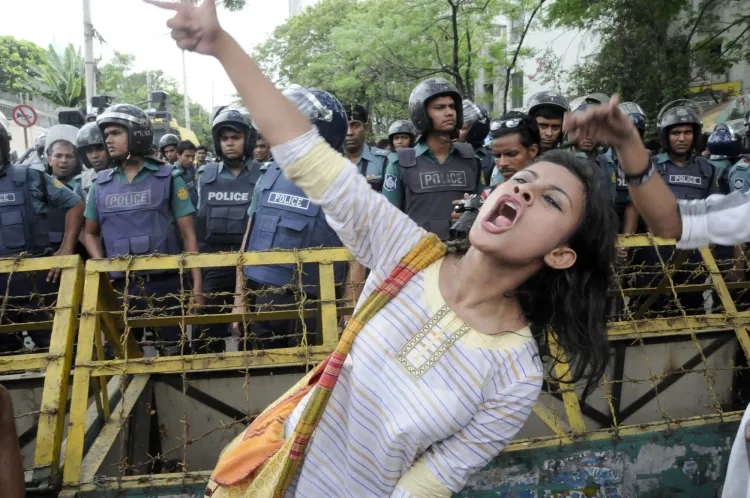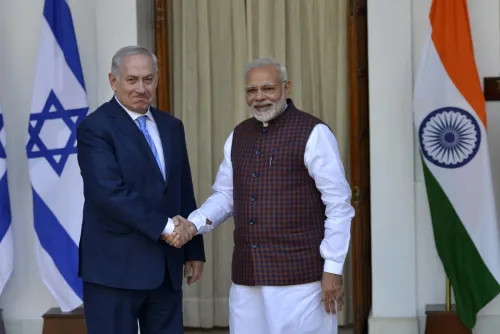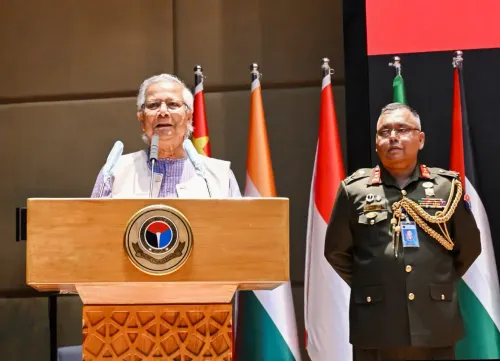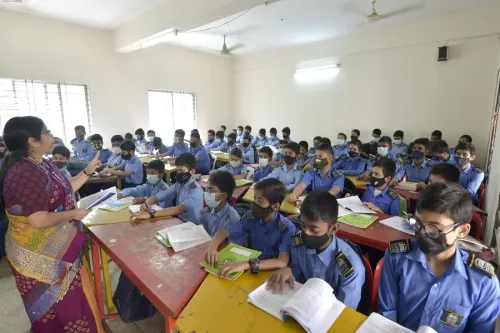Is There an Alarming Increase in Violence Against Women in Bangladesh?

Synopsis
Key Takeaways
- Significant increase in violence against women reported in Bangladesh.
- Over 2,400 incidents documented in just ten months.
- Call for effective legal reforms and societal change.
- Need for greater empowerment of women in decision-making.
- Activists urge suppression of misogynistic narratives.
Dhaka, Nov 25 (NationPress) Leaders of Bangladesh Mahila Parishad expressed grave concern over the alarming rise in mob violence in the nation, revealing that cases have surged dramatically. They emphasized that the incidents of violence against women and girls have escalated significantly and urged for the suppression of misogynistic propaganda, as reported by local media.
During a press conference held on the International Day for the Prevention of Violence against Women, the organization disclosed that 2,468 reports of violence against women and girls were published in Bangladeshi media within the last 10 months (January-October 2025), according to the Bengali daily, Prothom Alo. Among these, 713 individuals suffered from rape, gang rape, or suicide following such assaults.
Additionally, various forms of violence, including murder, domestic abuse, dowry-related crimes, child marriage, sexual assault, kidnapping, and cyber violence, have been reported against women and girls.
Responding to inquiries at the press conference, Fawzia Moslem, President of Bangladesh Mahila Parishad, stated, "The successful implementation of laws, transformation of patriarchal mindsets, and reform of social institutions are essential to combat violence. Misogynistic narratives must be decisively challenged. The media also needs to establish standards regarding the representation of violence against women."
Bangladesh Mahila Parishad's Joint Secretary, Masuda Rehana Begum, noted, "Mob violence is increasingly alarming. An analysis of five years’ worth of data reveals that violence against women and children remains unabated."
Another Joint Secretary, Seema Moslem, pointed out that true empowerment of women is unattainable unless they have a say in decision-making processes. She advocated for direct elections for reserved seats in the National Parliament of Bangladesh, as reported by Prothom Alo.
A recent survey by the Bangladesh Bureau of Statistics (BBS) indicated that 76% of women in Bangladesh have encountered physical, mental, sexual, and financial abuse, often at the hands of their spouses.
The nation has experienced a concerning rise in violence against women under the interim government of Muhammad Yunus, shedding light on the deteriorating law and order situation.
Recent statistics reveal a distressing reality in Bangladesh, with 663 rapes reported in the first nine months of 2025, as per local media.
The data released by the Human Rights Support Society (HRSS) in Dhaka highlights a growing crisis fueled by a culture of impunity, the decline of law and order, and the failure of the Yunus-led interim government to uphold its commitments under international women’s rights accords, including the Beijing Declaration.
Human rights activist Sultana Kamal stated in an interview with the Dhaka Tribune that the reported figures only represent a small fraction of the violence occurring across the nation.
"We only hear about rape and torture when they reach the media, typically following a murder or a particularly brutal event. Countless forms of violence go unreported. What we see is merely the surface of a horrific reality," she remarked.
Sultana expressed that the increasing incidents of rape and sexual violence signify a blatant disregard for women's rights and dignity.
"In a nation we pride ourselves on for its culture and history, more than six hundred women have been raped in just nine months. This indicates a severe lack of respect for women—by families, society, and the state," she asserted.
She stressed that the prevailing culture of impunity has emboldened offenders, stating, "There was once a belief among criminals that they would face consequences for their actions. That belief has vanished. When women are tortured without repercussions, violence persists. It is an affront to their dignity and the sanctity of their bodies."









